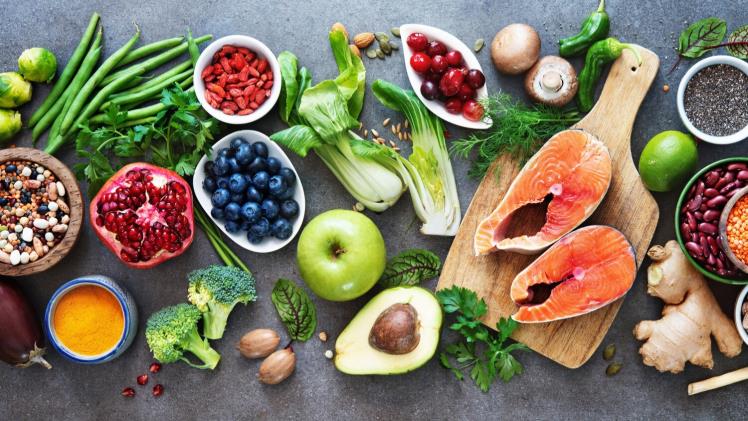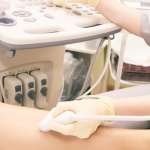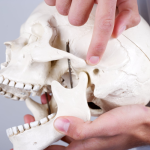Imagine embarking on a challenging hike, one that demands both physical and mental resilience. Just like you wouldn’t attempt such a journey without proper gear and sustenance, recovery from addiction, mental health challenges, or chronic illnesses requires nurturing both your body and mind. This is where the power of nutrition in recovery comes into play.
It is understood that recovery is a multifaceted journey. That’s why it required time, care and immense support. At Pinnacle Recovery, they provide so much care and love along with comprehensive treatment programs that prioritise therapy, support groups, and evidence-based interventions, they also recognize the crucial role nutrition plays in supporting healing and overall well-being. For more information, please click this link https://pinnaclerecoveryut.com.
This blog post delves into the fascinating connection between food and recovery, addressing common misconceptions, offering practical tips, and highlighting the importance of a holistic approach.
Understanding the Connection: How Food Impacts Your Recovery
It’s easy to underestimate the profound impact of what we eat on our physical and mental health, especially during recovery. Food is more than just calories; it’s a complex combination of nutrients that influence everything from brain function to energy levels, sleep quality, and even immune response.
- Brainpower Boost: Studies have shown that certain nutrients, like omega-3 fatty acids and B vitamins, play a crucial role in supporting neurotransmitter function, cognitive performance, and mood regulation. Deficiencies in these nutrients can worsen symptoms of depression, and anxiety, and even contribute to cravings in addiction recovery.
- Sustained Energy: Ever felt sluggish and unproductive after a sugary breakfast? Balanced meals rich in complex carbohydrates, lean protein, and healthy fats provide sustained energy throughout the day, preventing the energy crashes that can hinder focus and motivation during recovery.
- Restful Sleep: Struggling to get a good night’s sleep? Certain foods, like those rich in tryptophan and magnesium, can promote relaxation and improve sleep quality, a crucial factor in managing stress and supporting emotional well-being in recovery.
- Immune System Defense: Recovering from addiction or a chronic illness often means a weakened immune system. A diet rich in fruits, vegetables, and whole grains provides essential vitamins, minerals, and antioxidants that bolster the immune system, helping you fight off infections and stay healthy.
These are just a few examples of how food choices directly impact various aspects of your recovery. By understanding these connections, you can make informed decisions about what you put on your plate and fuel your body for optimal healing.
Addressing Common Concerns: Debunking Myths and Misconceptions
When it comes to food and recovery, numerous myths and misconceptions can create confusion and hinder progress. Here are some common ones to debunk:
- Myth: I need to follow a strict, restrictive diet to recover.
- Reality: While certain dietary restrictions may be necessary for specific health conditions, recovery thrives on balanced and flexible eating patterns. Prioritising whole, unprocessed foods while allowing for occasional treats fosters a healthy relationship with food and prevents feelings of deprivation.
- Myth: Certain “superfoods” or supplements can cure my addiction or mental health challenges.
- Reality: There’s no magic bullet when it comes to recovery. While specific nutrients can support healing, relying solely on fad diets or miracle cures can be dangerous and ineffective. A holistic approach that combines healthy eating with professional treatment is key.
- Myth: Food choices alone can “fix” my problems.
- Reality: Food plays a vital role, but it’s just one piece of the puzzle. Recovery often requires a comprehensive approach that includes therapy, support groups, stress management techniques, and building a strong support network.
By understanding and addressing these misconceptions, you can make informed choices about your nutritional journey in recovery, focusing on sustainable and evidence-based approaches.
Building a Nourishing Plate: Practical Tips for Healthy Eating in Recovery
Now that we’ve explored the connections and addressed common concerns, let’s get practical! Here are some actionable tips to incorporate healthy eating habits into your recovery journey:
- Embrace Whole Foods: Focus on filling your plate with fruits, vegetables, whole grains, lean protein sources, and healthy fats like nuts, seeds, and avocados. These foods are packed with essential nutrients your body needs for optimal functioning.
- Mindful Eating Matters: Practise mindful eating by paying attention to your hunger and satiety cues, savouring your food, and avoiding emotional eating. This mindful approach fosters a healthy relationship with food and prevents overeating.
- Stay Hydrated: Don’t underestimate the power of water! Aim for eight glasses of water per day to stay hydrated, support digestion, and boost energy levels.
- Plan and Prepare: Planning and preparing meals in advance helps you make healthy choices and avoid unhealthy temptations when pressed for time
- Seek Support: Consider consulting a registered dietitian or nutritionist. They can provide personalised guidance tailored to your specific needs and health conditions, ensuring your dietary choices support your recovery journey effectively.





